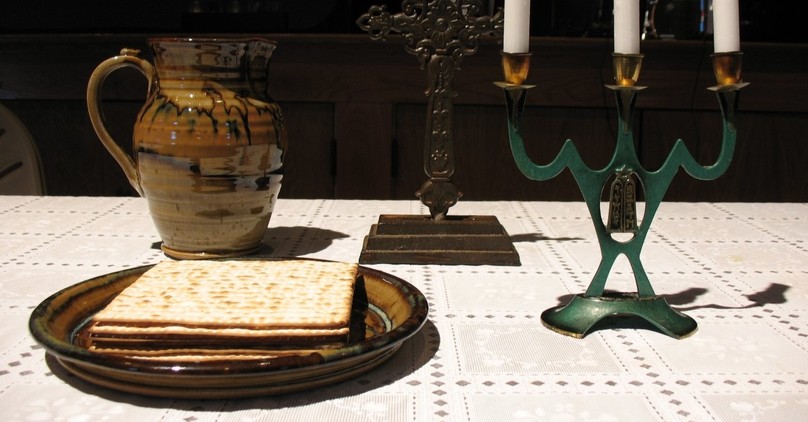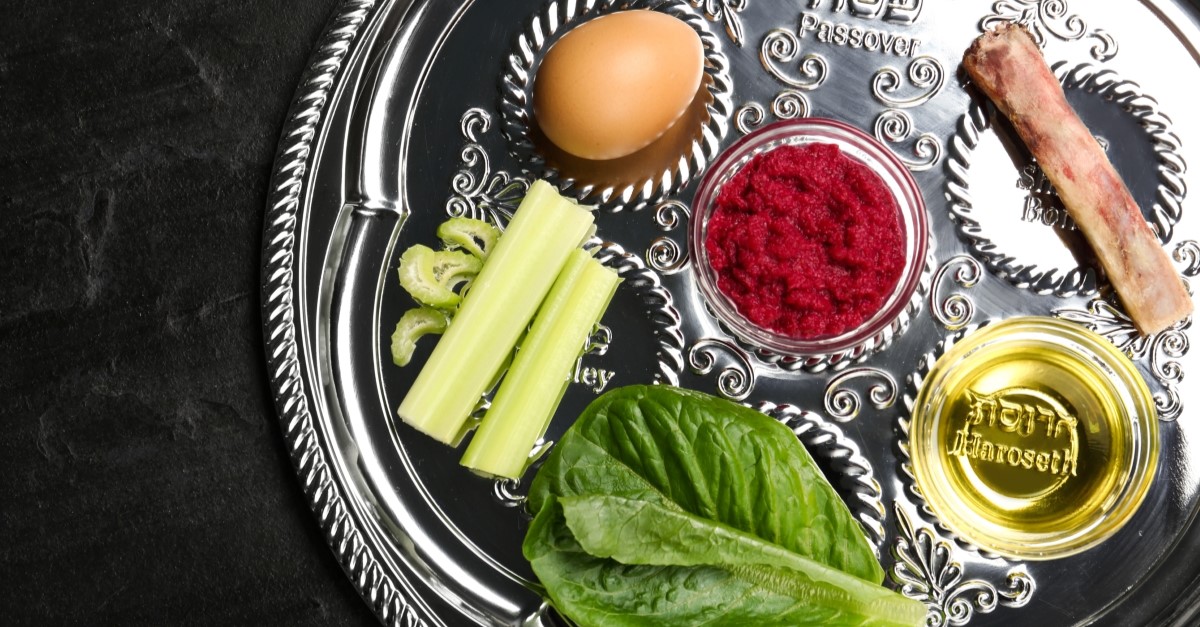
When Is Passover in 2024?
In 2024, the Passover Holiday will begin on the evening of Monday, April 22, and end on Tuesday, April 30.
Passover is a traditional Jewish holiday with biblical origins. It is a celebration of the deliverance of the Jewish people by God from their bondage in ancient Egypt under the guidance of Moses. Passover commemorates the story of the Exodus as depicted in the Hebrew Bible, notably in the Book of Exodus.
Passover is a spring holiday and was associated with the sacrifice of the "first-fruits of the barley" during the presence of the Temple in Jerusalem, barley being the first seed to mature and collect in the Land of Israel.
Some Christians recognize a version of the Jewish holiday of Passover. The tradition is observed among Assemblies of Yahweh, Messianic Jews, and some congregations of the Church of God (Seventh Day). It is often associated with the Christian celebration and festivities of Easter. The salvation from the subjugation of sin through the sacrifice of Christ is celebrated, a resemblance of the Jewish Passover's celebration of salvation from slavery in the land of Egypt.
Discover more about the Traditions and History of Passover.
Passover in the Bible
Scripture references to Passover Holiday origins and traditions are mostly found in the Old Testament as it commemorates the liberation of Israelites from slavery in Egypt during the time of Moses conveyed in the book of Exodus. Discover notable Bible verses about Passover in the collection of scripture quotes listed below!
Then Moses summoned all the elders of Israel and said to them, "Go at once and select the animals for your families and slaughter the Passover lamb. Take a bunch of hyssops, dip it into the blood in the basin and put some of the blood on the top and on both sides of the doorframe. None of you shall go out of the door of your house until morning. When the Lord goes through the land to strike down the Egyptians, he will see the blood on the top and sides of the doorframe and will pass over that doorway, and he will not permit the destroyer to enter your houses and strike you down. "Obey these instructions as a lasting ordinance for you and your descendants. When you enter the land that the Lord will give you as he promised, observe this ceremony. And when your children ask you, 'What does this ceremony mean to you?' then tell them, 'It is the Passover sacrifice to the Lord, who passed over the houses of the Israelites in Egypt and spared our homes when he struck down the Egyptians.' " Then the people bowed down and worshiped. The Israelites did just what the Lord commanded Moses and Aaron. Exodus 12:21-28
Get rid of the old yeast, so that you may be a new unleavened batch-as you really are. For Christ, our Passover lamb has been sacrificed. 1 Corinthians 5:7
"'These are the Lord's appointed festivals, the sacred assemblies you are to proclaim at their appointed times: The Lord's Passover begins at twilight on the fourteenth day of the first month. On the fifteenth day of that month, the Lord's Festival of Unleavened Bread begins; for seven days you must eat bread made without yeast. On the first day hold a sacred assembly and do no regular work. For seven days present a food offering to the Lord. And on the seventh day hold a sacred assembly and do no regular work.' " Leviticus 23:4-8
While they were eating, Jesus took bread, and when he had given thanks, he broke it and gave it to his disciples, saying, "Take and eat; this is my body." Then he took a cup, and when he had given thanks, he gave it to them, saying, "Drink from it, all of you. This is my blood of the covenant, which is poured out for many for the forgiveness of sins. Matthew 26:26-28
"Celebrate the Festival of Unleavened Bread; for seven days eat bread made without yeast, as I commanded you. Do this at the appointed time in the month of Aviv, for in that month you came out of Egypt. "No one is to appear before me empty-handed. Exodus 23:15
"'A foreigner residing among you is also to celebrate the Lord's Passover in accordance with its rules and regulations. You must have the same regulations for both the foreigner and the native-born.' " Numbers 9:14
On the first day of the Festival of Unleavened Bread, when it was customary to sacrifice the Passover lamb, Jesus' disciples asked him, "Where do you want us to go and make preparations for you to eat the Passover?" So he sent two of his disciples, telling them, "Go into the city, and a man carrying a jar of water will meet you. Follow him. Say to the owner of the house he enters, 'The Teacher asks: Where is my guest room, where I may eat the Passover with my disciples?' He will show you a large room upstairs, furnished and ready. Make preparations for us there." The disciples left, went into the city, and found things just as Jesus had told them. So they prepared the Passover. When evening came, Jesus arrived with the Twelve. While they were reclining at the table eating, he said, "Truly I tell you, one of you will betray me, one who is eating with me." They were saddened, and one by one they said to him, "Surely you don't mean me?" "It is one of the Twelve," he replied, "one who dips bread into the bowl with me. The Son of Man will go just as it is written about him. But woe to that man who betrays the Son of Man! It would be better for him if he had not been born." While they were eating, Jesus took bread, and when he had given thanks, he broke it and gave it to his disciples, saying, "Take it; this is my body." Then he took a cup, and when he had given thanks, he gave it to them, and they all drank from it. "This is my blood of the covenant, which is poured out for many," he said to them. "Truly I tell you, I will not drink again from the fruit of the vine until that day when I drink it new in the kingdom of God." Mark 14:12-15
History and Origin of Passover
The sources of the Passover holiday precede the Exodus. The Passover ceremony, prior to Deuteronomy, is generally thought to have its origins in an evil-repelling ritual, unrelated to the Exodus, to assure the safekeeping of a family home. Hyssop was used to apply the blood of a slain sheep on the house entry to ensure that wicked forces could not infiltrate the building.
The biblical commandments regarding the Passover (also the Feast of Unleavened Bread) emphasize the significance of recognizing the following:
- Deuteronomy 16:12 And thou shalt remember that thou wast a bondman in Egypt, and thou shalt observe and do these statutes"
- Exodus 12:14 commands, in reference to God's sparing of the firstborn from the Tenth Plague: And this day shall be unto you for a memorial, and ye shall keep it a feast to the LORD; throughout your generations, ye shall keep it a feast by an ordinance for ever.
- Exodus 13:3 repeats the command to remember: Remember this day, in which you came out of Egypt, out of the house of bondage, for by strength the hand of the LORD brought you out from this place.
Passover Traditions

Photo Credit: ©GettyImagesLiudmila Chernetska
One of the most significant Passover customs for observing Jews is eliminating all leavened food products from their home before the holiday begins and fasting, or withholding, from them throughout the span of the holiday.
In place of bread, religious Jews eat a kind of flatbread called matzo, as pictured above. According to tradition, this is because the Hebrews escaped Egypt in such a hurry that there was no time for their bread to rise, or perhaps because matzo was lighter and easier to carry through the desert than regular bread.
Should Christians Celebrate Passover?
According to Russ Jones on what Christians should know about Passover: Some might debate whether or not it is appropriate for a Christian to celebrate Passover. Whether one chooses to do so or not is a decision for the individual Christian to make. While Passover remembers the Jews' deliverance from slavery, it also is a depiction of Christ's atonement for His people and His deliverance of us from the bondage of sin. The end result is certainly worthy of a Christian's consideration and could provide needed "bread for the journey" - whether it is unleavened or not!
As a final step in the process, allow me to encourage you to speak with a Rabbi about Passover if you have additional curiosities. He can inform you about this important Jewish observation.
Cove Photo Credit: Flickr/James Emery
This article is part of our larger Holy Week and Easter resource library centered around the events leading up to the death and resurrection of Jesus Christ. We hope these articles help you understand the meaning and story behind important Christian holidays and dates and encourage you as you take time to reflect on all that God has done for us through his son Jesus Christ!
What is Lent? It's Meaning and Why We Celebrate
When is Lent? When Does Lent Start and End?
What is the Meaning Ash Wednesday?
What is Holy Week?
What Is the Meaning of Palm Sunday?
What is the Meaning of Holy Monday?
What is Maundy Thursday?
What Is Good Friday and Why is it Good?
Good Friday Prayer
What Does Holy Saturday Mean?
What Is the Easter?
Easter Prayers
Powerful Facts About the Cross of Jesus


